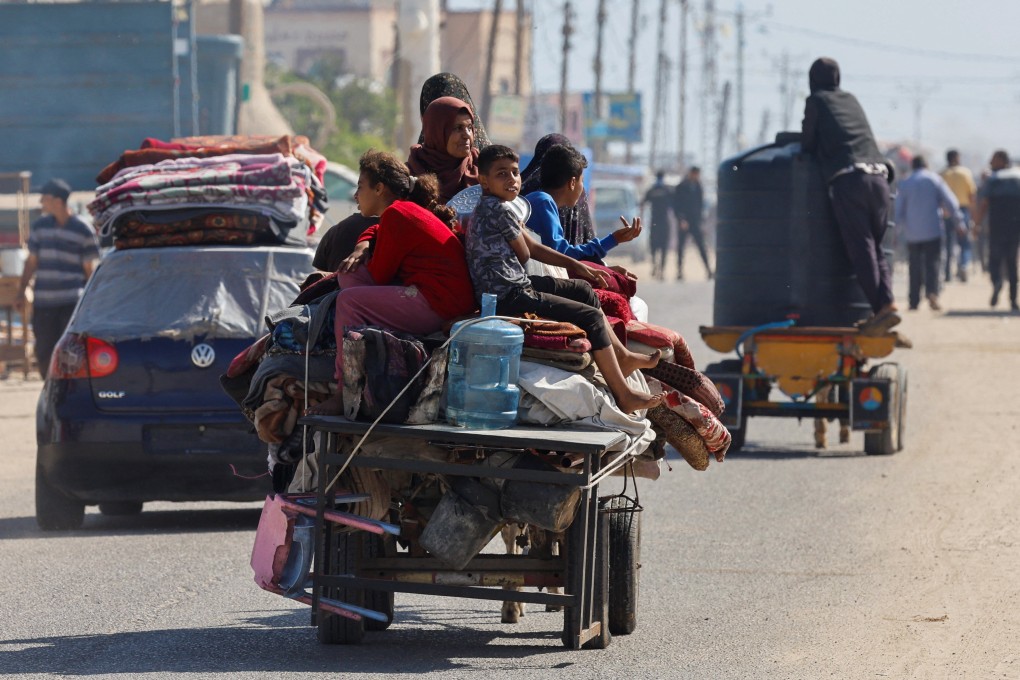Israel-Gaza war: 110,000 have fled Rafah as Netanyahu vows to widen assault despite Biden’s warning to withhold arms
- The UN says more than 100,000 people have fled Rafah in recent days, as the southern Gaza city is under threat of a full-scale Israeli ground invasion
- Israeli Prime Minister Benjamin Netanyahu said on Thursday that a US threat to withhold some weapons would not deter Israel from expanding its offensive in Gaza

About 110,000 people have fled the city of Rafah in southern Gaza, as heavy fighting between Israeli troops and Palestinian militants on the city’s outskirts leaves aid crossings inaccessible and food and fuel supplies grow critically low, a UN official says.
All crossings into southern Gaza remain effectively closed, cutting off supplies and preventing medical evacuations and the movement of humanitarian staff, said Georgios Petropoulos, an official for the UN’s Office for the Coordination of Humanitarian Affairs working in Rafah.
Some 1.3 million Palestinians – over half Gaza’s population – had sought refuge in Rafah.
Israeli Prime Minister Benjamin Netanyahu said on Thursday that a US threat to withhold some weapons would not deter Israel from expanding its offensive in Gaza. A limited Israeli operation earlier this week captured the Gaza side of Rafah’s border crossing with Egypt, throwing humanitarian operations into crisis.
The death toll from the war in Gaza has soared to some 35,000 people, according to local health officials, and caused vast destruction to flats, hospitals, mosques and schools across several cities. The UN says northern Gaza is already in a state of “full-blown famine.”
The World Food Program will run out of food for distribution in southern Gaza by Saturday unless more aid arrives, Petropoulos said. UN officials warn that the lack of fuel is undermining medical facilities, water supplies and sewage systems across Gaza.